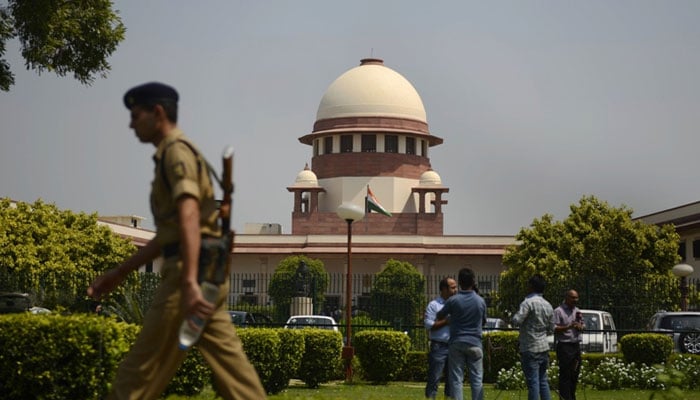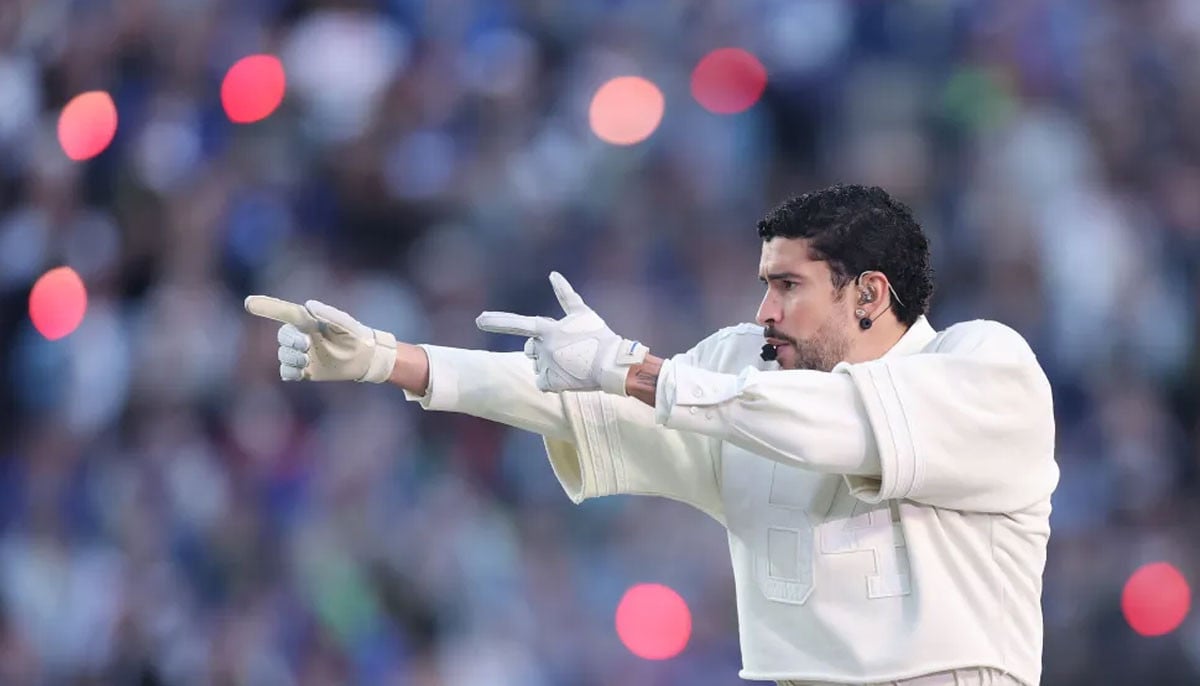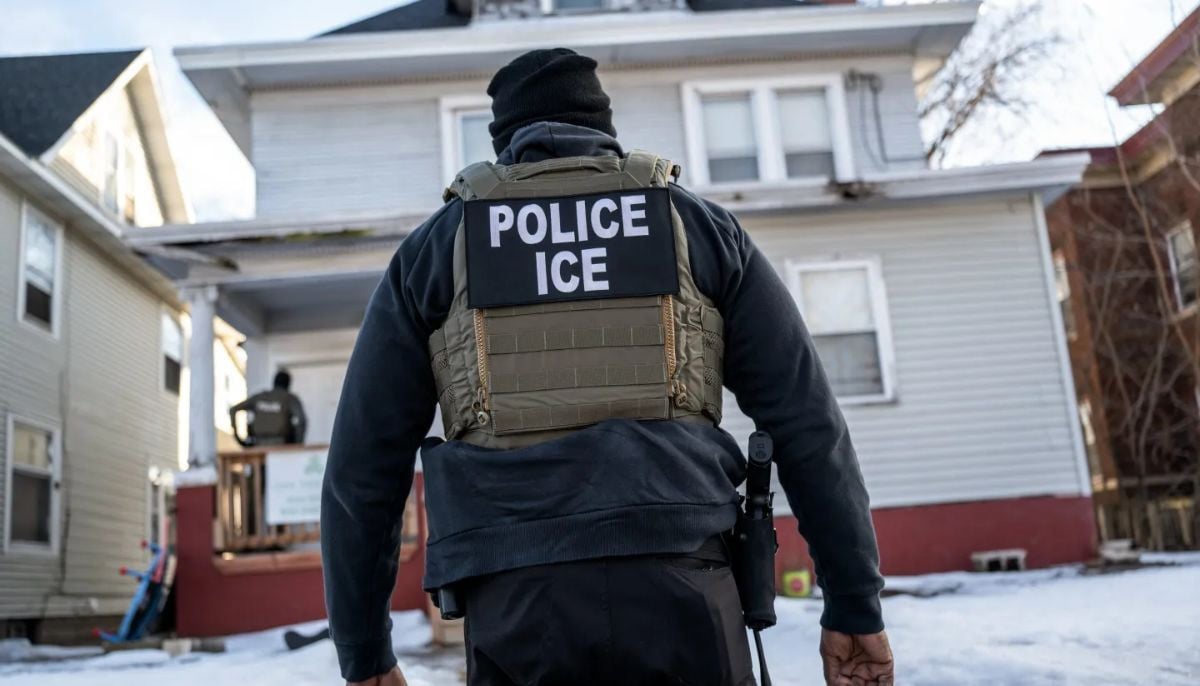Indian top court upholds decision to abrogate IIOJK special status
Modi government had abrogated the special status of IIOJK through a bill in parliament in 2019
The Indian Supreme Court on Monday noted that Indian Illegally Occupied Jammu and Kashmir (IIOJK) did not attain sovereignty when it joined the union and that the occupied territory does not have internal sovereignty, NDTV reported.
Indian Prime Minister Narendra Modi-led government in August 2019 unilaterally abrogated the special status of the occupied valley and deployed tens of thousands of troops in a bid to ward off protests against the illegal move.
Subsequently, a batch of petitions challenged the abrogation of Article 370 of the Constitution and a five-judge bench led by Chief Justice of India (CJI) Dhananjaya Yeshwant Chandrachud heard the matter for 16 days and reserved its verdict on September 5.
The Indian CJP-led announced the verdict today and held that the occupied territory became an integral part of India "which is evident from Article 1 and 370 of the constitution".
The top court also upheld the Indian government's decision to abrogate the disputed region's semi-autonomous status, stating that the IIOJK "does not have internal sovereignty".
The Indian Supreme Court also directed the country's election commission to conduct elections in IIOJK by September 2024.
By repealing Article 370 of the constitution, people from the rest of India were given the right to acquire property in the disputed territory and settle there permanently.
Kashmiris see the move as an attempt to dilute the demographics of Muslim-majority Kashmir with Hindu settlers.
Pakistan had strongly condemned the move and vowed to “exercise all possible options to counter the illegal steps” taken by India.
India has for decades stationed more than half a million soldiers in the Himalayan disputed territory.
The suspension of IIOJK's semi-autonomous status allowed Indians from elsewhere to buy land and claim government jobs there, a policy denounced by critics as "settler colonialism".
Many residents and critics say that authorities have since curbed media freedoms and public protests in a drastic curtailment of civil liberties.
Modi's government has defended the decision in the court, saying the change had brought "peace, progress and prosperity" to the restive territory.
Consolidating New Delhi's rule over the IIOJK has long been a key plank of Modi's Hindu nationalist Bharatiya Janata Party (BJP).
‘Indian SC in cahoots with right-wing groups’
Dr Qamar Cheema, a security expert, told Geo News, that the Indian top court’s verdict was expected as the Kashmiri people had been deprived of their rights for the last five years.
"How can India ignore the dispute that is on the UN Security Council's agenda? India's Article 51 of the Constitution says to respect international law and Article 3 says to respect the states. How can the Indian SC announce this verdict?" said the expert.
He said that India is scheduled to hold national elections and this verdict is considered as pre-poll rigging.
"The [Indian] Supreme Court seems to be a part of the right-wing groups that are promoting nationalism," he said, adding that this land is a "disputed land" as declared internationally.
Cheema said that this is an injustice to the people of Kashmir by taking their fundamental, constitutional and legal rights “which shows that PM Modi holds a monopoly in India”.
"Modi's 10-year rule in India depicted a reign of terror as the media was already under pressure from the Modi government. Now the judiciary has also ignored people's fundamental and political rights and the constitution," he added.
Cheema said that this has also happened in the past when the Indian SC judges announced a verdict in favour of the Modi-led BJP, they are termed as the members of the parliament.
"These SC members may be accommodated in the parliament. This is a very strategic decision as India has elections in 3-4 months. This shows that India's Constitution is an illiberal democracy. The international community can call it semi-authoritarianism," said the security expert.
'Fight for honour will continue'
Former IIOJK chief minister and People's Democratic Party (PDP) President Mehbooba Mufti issued a video following the verdict, asking the people of the occupied territory not to lose hope or give up.
“Our fight for honour and dignity will continue regardless. This isn’t the end of the road for us,” she wrote on her official X handle.
She was reportedly put under house arrest ahead of the Supreme Court's verdict on the abrogation of Article 370.
Jammu and Kashmir National Conference (JKNC) leader Omar Abdullah said he was disappointed but not "disheartened" over the top court's decision.
"The struggle will continue. It took the BJP decades to reach here. We are also prepared for the long haul," he wrote on X.
Meanwhile, Indian PM Modi termed the Supreme Court verdict on the abrogation of Article 370 "historic" saying it constitutionally upholds the decision taken by the Parliament of India in 2019.
"[...] it is a resounding declaration of hope, progress and unity for our sisters and brothers in Jammu, Kashmir and Ladakh. The Court, in its profound wisdom, has fortified the very essence of unity that we, as Indians, hold dear and cherish above all else."
-
Poll reveals majority of Americans' views on Bad Bunny
-
Man convicted after DNA links him to 20-year-old rape case
-
California cop accused of using bogus 911 calls to reach ex-partner
-
'Elderly' nanny arrested by ICE outside employer's home, freed after judge's order
-
key details from Germany's multimillion-euro heist revealed
-
Search for Savannah Guthrie’s abducted mom enters unthinkable phase
-
Barack Obama addresses UFO mystery: Aliens are ‘real’ but debunks Area 51 conspiracy theories
-
Rosie O’Donnell secretly returned to US to test safety












